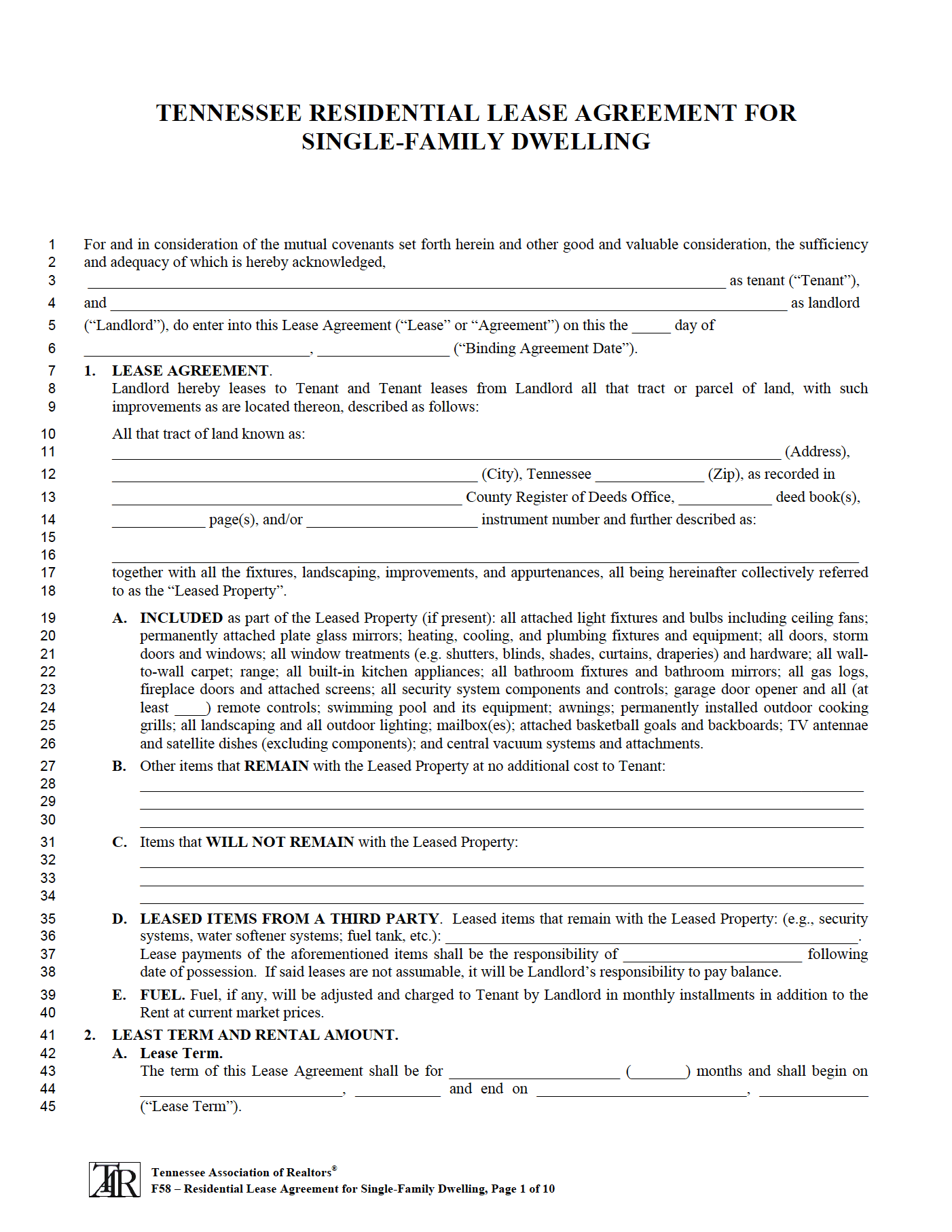Tennessee Standard Residential Lease Agreement
A Tennessee residential lease agreement is a legally binding document that establishes the framework for a rental agreement in which a landlord leases a property to a tenant, typically for one (1) year.
The form adheres to all relevant lease laws, incorporating the requisite disclosures landlords must provide their tenants. The contract addresses critical components of the landlord-tenant relationship, such as the parties involved, property description, inclusions and exclusions, lease term, and rent amount.
Tenant Screening: Tennessee Rental Application
State Laws
Laws: Uniform Residential Landlord and Tenant Act
Maximum Security Deposit: Tennessee law does not impose a maximum security deposit amount that a landlord can charge a tenant. However, landlords must deposit any collected security deposits in a bank account or other monetary institution account designated solely for this purpose, as stipulated by § 66-28-301.
Deadline for Returning Security Deposits (§ 66-28-301(g)): Per state law, landlords must return security deposits to tenants within specific timeframes (minus any expenses incurred due to tenant-caused damages). The deadlines for returning security deposits depend on the particular circumstances faced by the landlord, as outlined below:
- If the tenant leaves or abandons the premises, the landlord has thirty (30) days to return the deposit.
- If a new tenant takes possession of the premises, the landlord must return the deposit within seven (7) days of this occurrence.
Required Notice for Property Access (§ 66-28-403(b)): In an emergency, landlords are not required to obtain tenant consent to enter the rental dwelling. However, there is no specified notice period for non-emergency access. Landlords must provide reasonable notice before entry, typically at least twenty-four (24) hours in advance.
